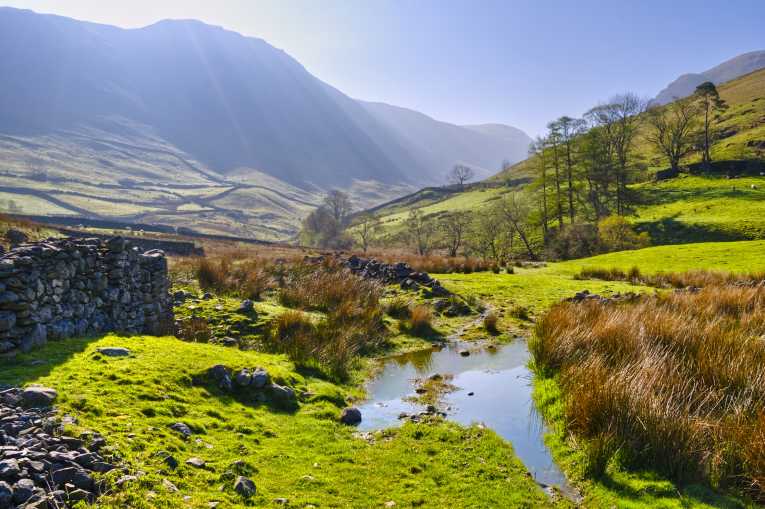The UK government has published a White paper promising to make this the first generation that leaves the country's environment in a better state than how they found it.
In The Natural Choice, Environment Minister Caroline Spelman sets out her ambition for the natural world and the environment, putting responsibility back into the hands of the country's inhabitants.
The 78 page report, the first White Paper on the natural environment for 20 years puts the value of nature at the heart of the choices to be made within the country in terms of enhancing the environment, economic growth and personal wellbeing. Spelman says too often we take for granted the "goods, services and amenity value nature freely provides us" and sets out her vision to encourage that we "properly value the economic and social benefits of a natural healthy environment".
Putting the intrinsic value of nature at the centre of the strategy, the government aims to establish a National Ecosystem Assessment ensuring there is better account for the impact on nature. Engaging with local communities to educate and inform on the importance of the natural environment, establishing and developing a green economy, emphasising the connections between people and nature as well as providing leadership within the European Community are the key aims of the paper to make caring for the environment more of a mainstream practice.
One of the key pledges is to create a business-led Ecosystem Market Task Force. Led by the Kingfisher CEO Ian Cheshire, the task Force will review the opportunities for UK businesses in green foods, enhancing the market in sustainable natural services. They task force will examine the opportunities for the financial sector to market new 'greener' products that make a natural capital return for investors, and the environment alike.
New guidance for business in 2012 will allow them to measure and report on their corporate environmental impact.
By spring 2012, the government will have established a system of measurement and indicators to track the progress of their green agenda.
Response to the report initially has been mixed. The Campaign for National parks describes it as a "far-reaching vision" enabling their country to "reconnect people with nature and properly account for the impacts of development on our natural environment". A statement from the group adds, "We think that national parks, the authorities that run them, and the wide community-based partnerships they support, are extremely well placed to take a lead on making this happen, and also to be leaders on outdoor education, which was a major theme at the launch of the Government's vision."
William Worsley Country Land and Business Association President welcomed key recommendations, including the "landscape scale approach underpinning the Nature Improvement Areas pilot scheme" and the "more local approach set out in the Green Area Designation proposals".
But he warned: "We need to ensure land managers are not put off participating through fear of yet more cumbersome planning controls."
In a joint statement, The Ramblers and British Mountaineering Council said however: "The white paper fails to fully recognise the important role that access and recreation play in facilitating the public's understanding and enjoyment of the natural environment."
In the farming community, the National Farmer's Union said they aim to work closely with government to find the right balance between food production and the natural environment. Deputy president of the union Meurig Raymond said farmers, who manage 75 per cent of the country's land surface, would play a crucial role in any future activities relating to the natural environment adding the NFU had "long argued for the need to produce more but impact less" but said the White Paper needed to be "more convincingly joined up" in its messages and delivery on environmental priorities.
Top Image: English Lake District, Credit: © Kevin Eaves










